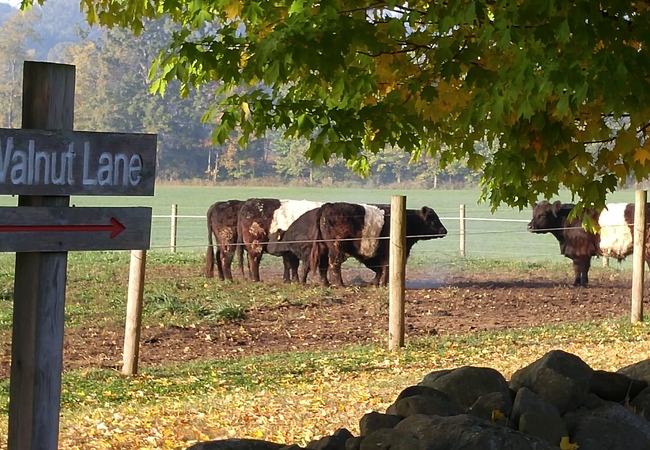July 9, 2025
Healing with Nature: The Therapeutic Benefits of a Working Farm Environment
By Kala Mansfield, LPC, ATR-P, Clinician and Art Therapist
Introduction
Therapeutic working farms are unique residential settings where individuals facing mental health challenges engage in meaningful, structured work in a natural, supportive environment. These farms combine the healing power of nature with community living and purposeful activity to promote emotional and psychological well-being. As more people seek holistic approaches to mental health care, therapeutic farms like Hopewell are gaining recognition for their profoundly positive impact. At Hopewell, residents can participate in daily farm activities such as caring for animals and maintaining a garden that helps feed the residential community year-round, all while receiving therapeutic support. Being part of a working farm offers powerful mental health benefits through immersion in nature, taking on structured responsibilities, and forming a connection with animals.
The Healing Power of Nature
Hopewell’s setting is nothing short of restorative. Spread across 325 acres of rolling pastures, woodlands, and gardens, the farm provides daily exposure to fresh air, wide-open green spaces, and the rhythmic sounds of nature. These elements are more than just scenic; they are a foundational aspect of the healing eco-therapy model. The concept of eco-therapy and nature-based healing is more than just a love for nature; it is supported by scientific evidence. Research has shown that spending time in nature reduces symptoms of anxiety and depression, lowers cortisol levels (the body's stress hormone), and improves mood. Immersion in natural surroundings helps calm the nervous system, regulate emotions, and build psychological resilience over time. And the Hopewell residents certainly are more than just immersed; they are living it. Each day brings moments of connection with the outdoors, whether through working in the garden, feeding animals every morning, or simply walking through wooded trails. This constant interaction with nature ensures that every moment of the program is rooted in therapeutic progress.
Performing Meaningful Work
Another way that the working farm model provides constant therapeutic moments is that the animals do not go home on the weekends. While traditional therapy groups are generally limited to weekdays, residents are given the opportunity to participate in the farm work crew every morning and afternoon, seven days a week. Some even assist staff in evening animal checks or utilize individual farm visits as part of their personal support plan.
For some individuals, this kind of structure is vital for mental health recovery. Those grappling with depression, anxiety, or PTSD benefit strongly from a predictable routine that fosters a sense of stability and direction. Having daily responsibilities within that routine helps residents stay grounded, motivated, and engaged. These daily farm responsibilities are therapeutically referred to as purposeful work. Feeding a chicken or harvesting a tomato may seem simple, but these acts contribute to the greater whole of the community. Purposeful work builds self-efficacy, a belief in one’s ability to make a difference, which is crucial in overcoming the feelings of helplessness that frequently accompany mental illness and experiences of trauma.
Animal Healers
While there are many types of purposeful work one could engage in, such as cleaning community spaces or assisting in the kitchen, animal care in particular holds powerful healing potential, as interacting with animals has been shown to reduce anxiety, lower blood pressure, and improve mood. Feeding and caring for the animals can create a sense of normalcy and provide practice in caring for other living beings, which in turn supports improved self-care. Residents can also develop bonds with the animals who offer an unconditional presence of trust. Equine Assisted Learning (one of the weekly groups) provides the opportunity to work with, learn from, and care for the horses in a more in-depth manner, allowing residents to understand non-verbal cues from the animals. Learning to read the horses’ non-verbal cues can support learning non-verbal cues from humans, which aids in improving social interactions and relationships. At Hopewell, the animals are not just part of the farm; they are part of the community, providing companionship, responsibility, and a sense of connection.
Closing
At Hopewell, the integration of natural beauty, meaningful work, and animal companions offers more than treatment; it provides transformation. The therapeutic benefits of a working farm environment are clear: nature nurtures emotional balance, structure provides purpose and routine, and the animals offer connection and support. For individuals seeking a holistic and empowering path to mental wellness, therapeutic farming communities like Hopewell offer an alternative model of hope and healing.
Back to Blog
